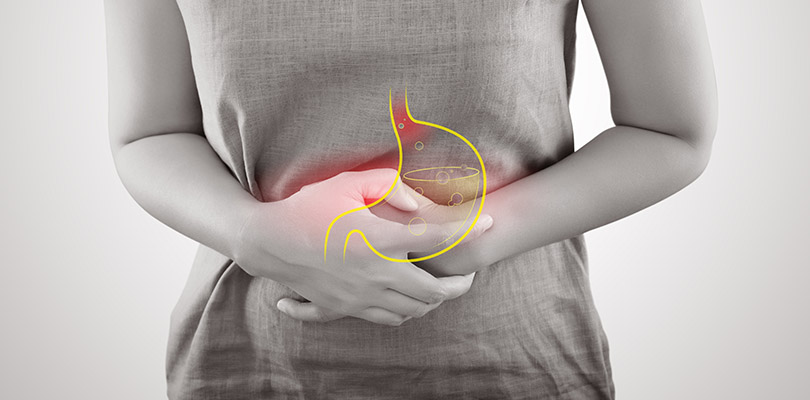What Is Gastric Cancer?
Stomach cancer, also known as gastric cancer, is a malignancy in a part of the stomach. When most people are diagnosed with this cancer, it has already spread – metastasized – or will spread.
Nearly all stomach cancers are a type called adenocarcinoma of the stomach. The cancer has developed from the cells that form the mucosa, the lining of the stomach that produces mucus.
Risk factors for Stomach Cancer
Certain medical conditions, lifestyle habits, and other factors increase the risk of stomach cancer, including:
- Esophagitis, GERD (gastroesophageal reflux disease), peptic stomach ulcer, Barrett's esophagus, chronic gastritis, stomach polyps
- Long-term smoking
- Helicobacter pylori infection
- Chronic ulcers
- Family history
- Diet high in foods containing aflatoxin fungus – crude vegetable oils, cocoa beans, figs, nuts, dried foods, and spices
- Diet high in salted fish, salty foods, smoked meats, and pickled vegetables
- Over the age of 55
- Men have twice the risk as women
- Previous or existing cancers – esophagus cancer or non-Hodgkin's lymphoma
- Men who have/had prostate, bladder or testicular cancer are at higher risk
- Females who have/had breast, ovarian or cervical cancer
- Surgical procedures that involve the stomach or the vagus nerve
Symptoms of Stomach Cancer
Early signs of stomach cancer can resemble other much less serious conditions, so it may be difficult to recognize. This is why so many patients are not diagnosed until the disease is already well advanced.
Early symptoms may include:
- A feeling of fullness during meals
- Difficulty swallowing
- Bloating after meals
- Burping frequently
- Heartburn
- Chronic indigestion
- Stomachache
- Vomiting (may contain blood)
Anyone over age 55 who develops persistent indigestion should see a doctor.
Treatments for Gastric Cancer
Treatment depends on several factors, including cancer severity and the patient's overall health. Treatments typically include surgery, chemotherapy, radiation therapy, and medications.
The surgeon will remove the stomach cancer as well as a margin of healthy tissue. This ensures that no cancerous cells are left behind.
- With early-stage cancer, the surgeon will remove tumors from the stomach lining. This is performed using endoscopy (a thin tube inserted into the stomach).
- Subtotal gastrectomy is the removal of a section of the stomach.
- Total gastrectomy is the removal of the entire stomach.
Abdominal surgeries are significant procedures and may require prolonged recovery time. Patients may have to stay in the hospital for two weeks after the procedure. Several weeks of recovery will follow this at home.
Radiation
Radiation therapy is not commonly used to treat stomach cancer because of the risk of harming other nearby organs. However, if the cancer is advanced and/or causing serious symptoms (bleeding or severe pain), radiation therapy may be used.
Neoadjuvant radiation is radiation before surgery to make the tumors smaller so that they can be removed more easily. Adjuvant radiation is radiation used after surgery to kill any remaining cancer cells around the stomach. Patients may experience indigestion, nausea, vomiting, and diarrhea as a consequence of undergoing radiation therapy.
Chemotherapy
Chemotherapy is medication to stop rapidly-growing cancer cells from multiplying. These drugs are known as cytotoxic medicines. The medication attacks cancer cells at the primary cancer and any other regions where it has spread.
Neoadjuvant chemotherapy is given before surgery to shrink the tumor so that it can be surgically removed more easily. Adjuvant chemotherapy is given after surgery to destroy any cancerous cells that may have remained behind. Chemotherapy may be the preferred treatment modality for certain types of gastric cancer, including gastrointestinal stromal tumors and gastric lymphoma.
Targeted medications include Sutent (sunitinib) and Gleevec (imatinib), which attack specific types of abnormalities in cancerous cells for patients with gastrointestinal stromal tumors.
Clinical trials
These are experimental therapies which may be trying new drugs or using existing therapies in novel ways. Patients may want to take part in some of the latest treatments. It is important to remember that clinical trials are experimental and do not guarantee a cure for stomach cancer.
Patients should discuss this option carefully with their doctors and family and bear in mind that such therapies have many unknowns, for example, the investigators may not be sure what side effects the participants might experience.
Check With a Doctor
If you have persistent indigestion, see a doctor. If you have other medical conditions that increase your risk of stomach/gastric cancer, it’s important that you find out the cause of your indigestion. Any cancer that is caught early is most treatable.
